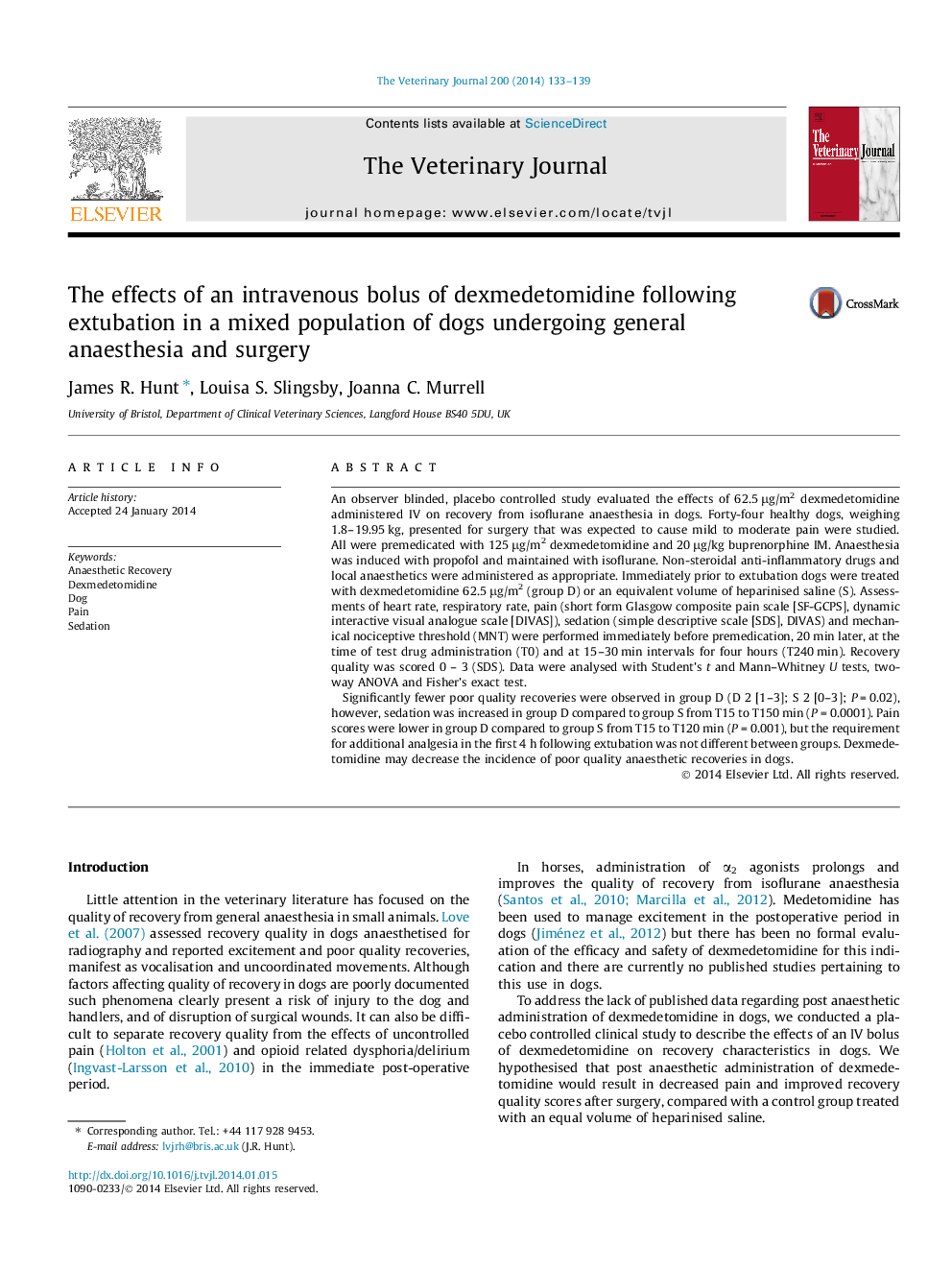| Article ID | Journal | Published Year | Pages | File Type |
|---|---|---|---|---|
| 2464011 | The Veterinary Journal | 2014 | 7 Pages |
An observer blinded, placebo controlled study evaluated the effects of 62.5 μg/m2 dexmedetomidine administered IV on recovery from isoflurane anaesthesia in dogs. Forty-four healthy dogs, weighing 1.8–19.95 kg, presented for surgery that was expected to cause mild to moderate pain were studied. All were premedicated with 125 μg/m2 dexmedetomidine and 20 μg/kg buprenorphine IM. Anaesthesia was induced with propofol and maintained with isoflurane. Non-steroidal anti-inflammatory drugs and local anaesthetics were administered as appropriate. Immediately prior to extubation dogs were treated with dexmedetomidine 62.5 μg/m2 (group D) or an equivalent volume of heparinised saline (S). Assessments of heart rate, respiratory rate, pain (short form Glasgow composite pain scale [SF-GCPS], dynamic interactive visual analogue scale [DIVAS]), sedation (simple descriptive scale [SDS], DIVAS) and mechanical nociceptive threshold (MNT) were performed immediately before premedication, 20 min later, at the time of test drug administration (T0) and at 15–30 min intervals for four hours (T240 min). Recovery quality was scored 0 – 3 (SDS). Data were analysed with Student’s t and Mann–Whitney U tests, two-way ANOVA and Fisher’s exact test.Significantly fewer poor quality recoveries were observed in group D (D 2 [1–3]; S 2 [0–3]; P = 0.02), however, sedation was increased in group D compared to group S from T15 to T150 min (P = 0.0001). Pain scores were lower in group D compared to group S from T15 to T120 min (P = 0.001), but the requirement for additional analgesia in the first 4 h following extubation was not different between groups. Dexmedetomidine may decrease the incidence of poor quality anaesthetic recoveries in dogs.
